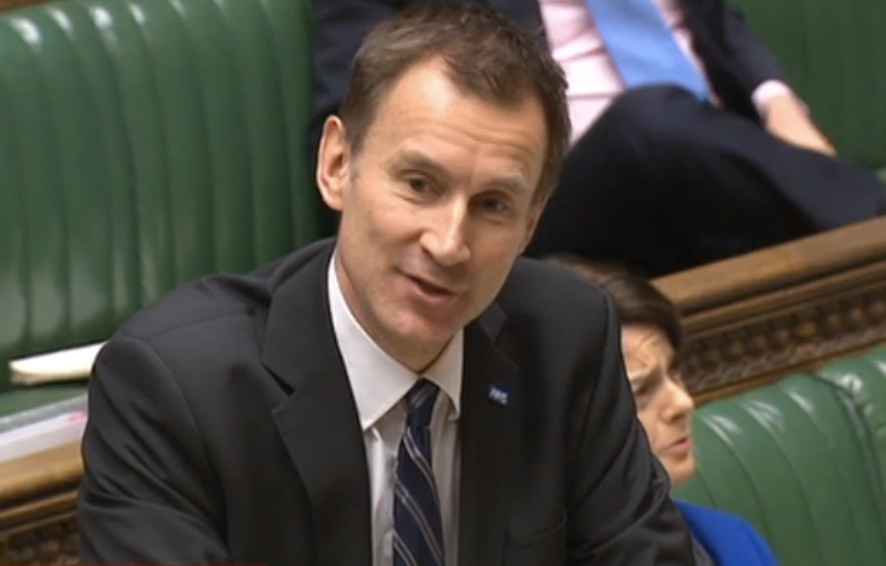Jeremy Hunt dodges question about whether he personally vetoed a deal to end the junior doctors' strike
The deal was supposedly agreed by the Department of Health, NHS Employers, and the British Medical Association

Jeremy Hunt has refused to confirm or deny whether stepped in to personally block a deal that would have averted tomorrow’s junior doctors’ strike.
The Independent reported earlier today that officials from both NHS Employers and the Department of Health saw a proposal by the BMA as a way to end the dispute.
Sources close to the British Medical Association however said Mr Hunt personally stepped in to block the deal and that negotiations have now “completely” broken down a day before the strike.
Citing the Independent report, Labour MP Justin Madders put the allegation directly to the Secretary of State at Health Questions in the House of Commons.
“Have the Government at any point rejected a cost-neutral proposal from the BMA on the junior doctor contract—yes or no?” he asked.
Mr Hunt dodged the question and would not answer it directly.
“The only reason we do not have a solution on the junior doctors is the BMA saying in December that it would negotiate on the one outstanding issue—pay on Saturdays—but last month refusing to negotiate,” he said instead.
“If the BMA is prepared to negotiate and be flexible on that, so are we. It is noticeable that despite 3,000 cancelled operations, no one in the Labour party is condemning the strikes.”
Doctors are set to walk out again on Wednesday as the latest in a programme of rolling strikes, triggered after they voted by over 98 per cent for action.
In pictures: Junior doctors protests in UK
Show all 10The industrial action is being taken over a new contract proposed by Mr Hunt which would re-define anti-social hours and make it cheaper for hospitals to roster doctors on weekends and evenings.
The Government says this will improve car at the weekends and evenings but junior doctors worry that it will affect patient safety by encouraging unsafe shift patterns, and also that doctors who work the very longest hours will lose out financially.
Mr Hunt has also been personally criticised by the British Medical Journal for citing studies it published and claiming they indicated that NHS care was dangerous at weekends.
The journal’s editor accused the Health Secretary of misusing the studies and said they could not be used to justify his conclusion.
A number of polls have shown widespread public support for junior doctors in the dispute.
A spokesperson for the Department of Health said: “The BMA has continuously refused to discuss unsocial hours pay, despite their agreement to talk about this as part of ACAS in November and the progress we’ve made on safety, education and training.”
Danny Mortimer, chief executive of NHS Employers, said: “The Secretary of State has supported NHS Employers in making substantive proposals which address the concerns of junior doctors. We have not since the New Year seen a response from the BMA which seeks compromise on these issues. We continue to want to talk with the BMA to agree a contract that is fair and safe for doctors and patients.”
Subscribe to Independent Premium to bookmark this article
Want to bookmark your favourite articles and stories to read or reference later? Start your Independent Premium subscription today.

Join our commenting forum
Join thought-provoking conversations, follow other Independent readers and see their replies